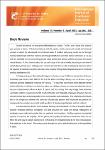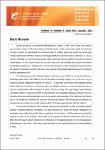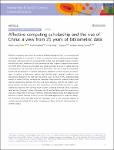Search
Author
- Ho, Manh Tung (3)
- Hong, Kong T. Nguyen (1)
- Manh, Tung Ho (1)
- Mantello, Peter (1)
- next >
Subject
Date issued
Search Results
In this book, Andrew McStay introduces the state-of-the-art emotional artificial intelligence (AI) which involves new media technologies that have acquired greater ability to read, sense, track, and classify human emotions, thanks to the rise of big data and computational power. |
In this book, Andrew McStay introduces the state-of-the-art emotional artificial intelligence (AI) which involves new media technologies that have acquired greater ability to read, sense, track, and classify human emotions, thanks to the rise of big data and computational power. |
Affective computing, also known as emotional artificial intelligence (AI), is an emerging and cutting-edge field of AI research. It draws on computer science, engineering, psychology, physiology, and neuroscience to computationally model, track, and classify human emotions and affective states. While the US once dominated the field in terms of research and citation from 1995–2015, China is now emerging as a global contender in research output, claiming second place for the most cited country from 2016–2020. This article maps the rhizomatic growth and development of scientific publications devoted to emotion-sensing AI technologies. It employs a bibliometric analysis that identifies major national contributors and international alliances in the field over the past 25 years. |
Affective computing, also known as emotional artificial intelligence (AI), is an emerging and cutting-edge field of AI research. It draws on computer science, engineering, psychology, physiology, and neuroscience to computationally model, track, and classify human emotions and affective states. While the US once dominated the field in terms of research and citation from 1995–2015, China is now emerging as a global contender in research output, claiming second place for the most cited country from 2016–2020. This article maps the rhizomatic growth and development of scientific publications devoted to emotion-sensing AI technologies. It employs a bibliometric analysis that identifies major national contributors and international alliances in the field over the past 25 years. |




